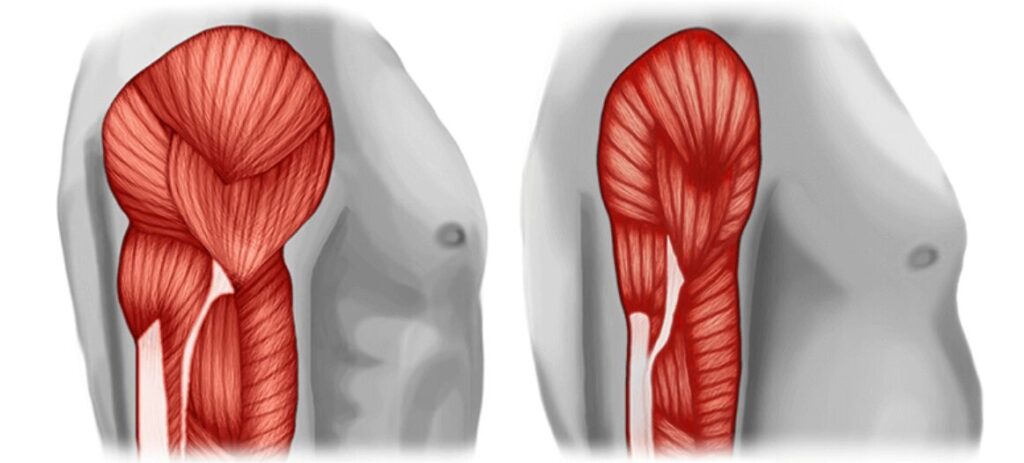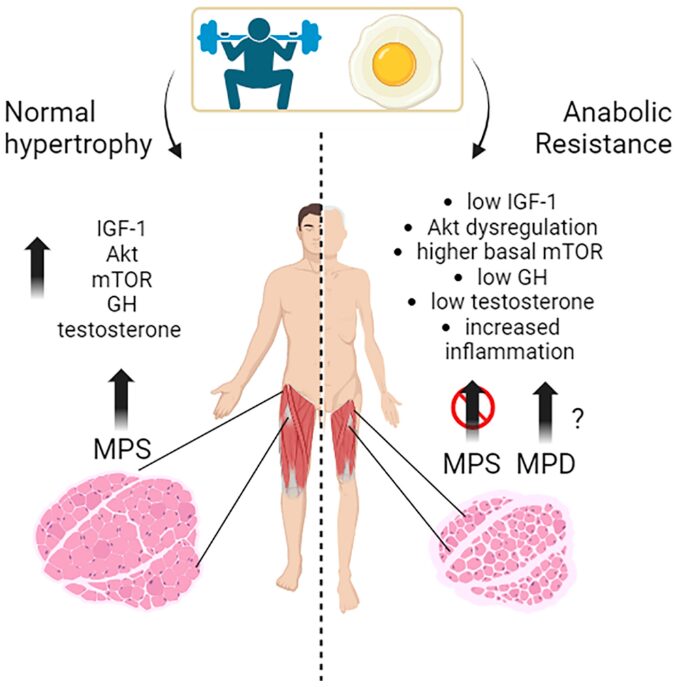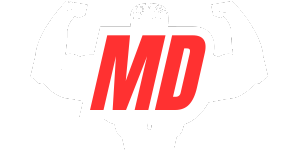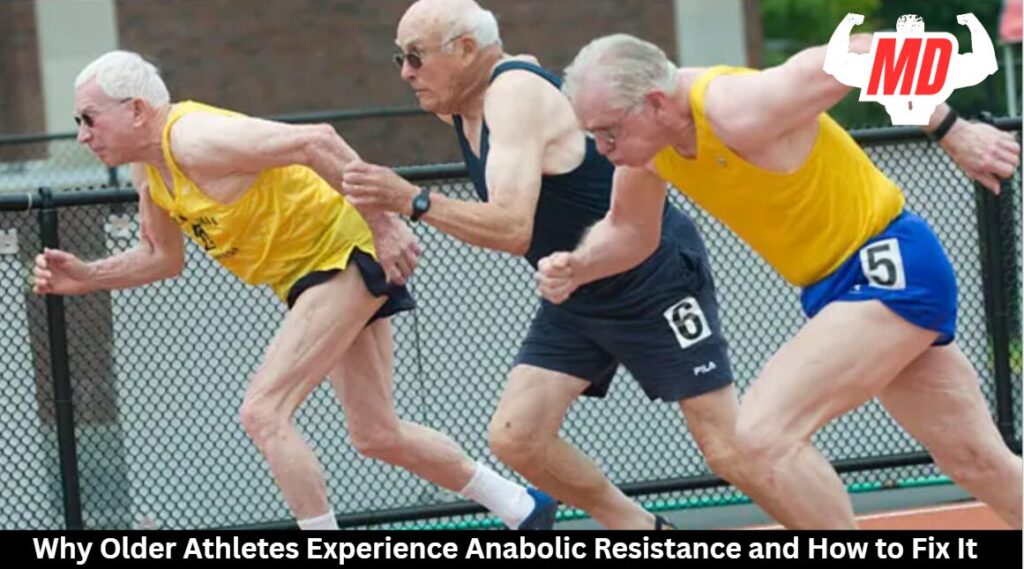Older athletes have anabolic resistance mostly because their hormones drop, especially testosterone and growth hormone, which slows down the production of muscle protein. It will be harder to gain and keep muscle mass. To fight this, make sure you eat protein-rich foods, especially those that are high in leucine. Add progressive resistance training to your routine to help your muscles adapt, and make sure you get enough rest by sleeping well and managing stress.
There is more to learn about personalized diets and effective workout methods for the best results.
What is Anabolic Resistance, and Why Does It Happen?
Anabolic resistance is a condition that can make it harder for your body to build muscle as you get older. This condition makes it harder for your muscles to respond to protein and exercise, which affects how they make new protein.
A drop in hormones, especially testosterone and growth hormone, primarily causes this problem. To fight anabolic resistance, you need good nutrition plans that make sure you get enough protein and amino acids throughout the day.
Also, it’s important to make recovery a priority. Proper rest and good hydration help your muscles recover and adapt more effectively. You can make changes that will help you keep your strength and muscle mass by understanding these things.

How Aging Affects Muscle Protein Synthesis
As you get older, your body will change in many ways. One of the most important changes is that muscle protein synthesis (MPS) slows down. As you get older, you might notice that your body doesn’t respond as well to protein intake because of anabolic resistance. This resistance happens in part because of changes in hormones, like lower levels of testosterone and growth hormone, which are important for MPS.
These changes can make it harder for you to build and keep muscle mass, so it’s important to change how you train and eat. By learning how aging affects muscle protein synthesis and taking proactive measures, you can reduce its impact and keep your muscles strong. It will help you stay strong and resilient in your athletic pursuits even as you get older.

Nutrition Strategies to Overcome Anabolic Resistance
To fight anabolic resistance, you need to focus on getting the best nutrition possible. First, make sure to get enough protein throughout the day so that your muscles can stay strong. Add dairy, meat, and legumes to your diet to help you reach your leucine threshold, which starts the process of making muscle protein.
Timing is also important. For better recovery, think about eating protein shortly after working out to improve your endocrine response. Also, try to get at least 25–30 grams of protein in each meal, spread out over several meals. Don’t forget about drinking enough water and getting enough micronutrients, as they are important for your health and recovery.
Using these nutrition tips can help your body fight anabolic resistance a lot better.

How to Train Older Athletes Effectively
As an older athlete, you need to use the right techniques to get the most out of your workouts and build muscle. Progressive resistance training is a good way to get your muscles to adapt and fight anabolic resistance. To improve your overall fitness, do both strength and endurance exercises.
Make sure to mix up your routine so that your body stays challenged. Put nutrition first by eating enough protein, especially foods high in leucine, to help you with your training. Set up structured recovery cycles so that your body has time to heal and get stronger.
Don’t forget how important sleep and staying hydrated are to your training. You can effectively boost your muscle growth and keep your best performance as you get older by using these strategies together.
The Importance of Recovery and Hormonal Balance
As an older athlete, getting better and balancing your hormones are two important things you can do to get the most out of your training. As you age, hormonal shifts can trigger sarcopenia, making it more difficult for your muscles to develop and maintain strength. To combat this, it’s necessary to prioritize recovery tools like massage and stretching, which help your body bounce back after strength training sessions.
Nutrition is also very important. Make sure you eat enough protein, especially foods high in leucine, to help your muscles make more protein. Also, getting enough sleep and managing stress can help you recover faster by keeping your hormones in check.
Using these strategies together will not only help you perform better, but they will also slow down the effects of anabolic resistance and help your health in the long run.
Frequently Asked Questions
How do genes affect older athletes’ anabolic resistance?
Your genes have a big impact on how your body reacts to anabolic processes. Some genes affect your muscle growth, recovery, and hormone levels, which makes you more likely to develop anabolic resistance as you get older. Knowing this can help you plan your training.
How does mental health affect muscle growth in older athletes?
As an older athlete, your mental health has a big effect on how your muscles grow. Having a positive attitude, being able to handle stress, and being emotionally healthy all help with motivation, recovery, and overall performance, which lets you train well and reach your fitness goals.
Are there certain exercises you shouldn’t do because of anabolic resistance?
Yes, you should stay away from high-impact exercises and lifts that are too hard on your joints. Instead, do low-impact, controlled movements that get your muscles working without putting you at risk of injury. It will make your training safer and more effective.
How does staying hydrated affect muscle recovery in older athletes?
Your muscles recover much better when you drink enough water. It helps move nutrients around, eases muscle pain, and keeps cells working properly. Staying well-hydrated makes sure you’re ready to train and keeps your performance levels high, even as you get older.
Can high-intensity interval training help older athletes?
High-intensity interval training can help older athletes, yes. It makes your heart and lungs stronger, helps your muscles last longer, and helps you burn calories more efficiently. Just be sure to adjust the intensity and rest periods to fit your own needs.



